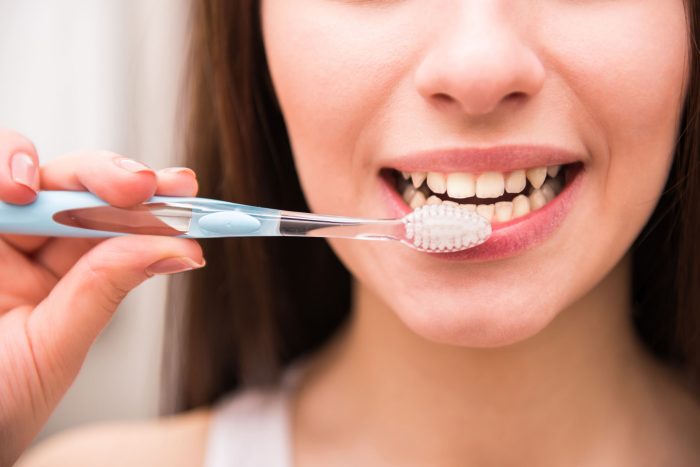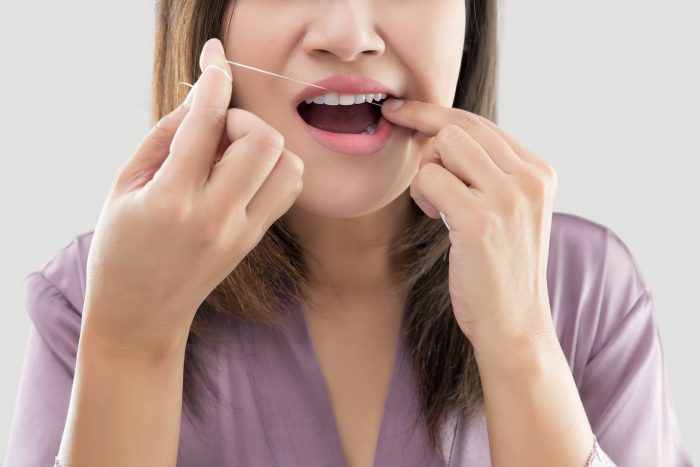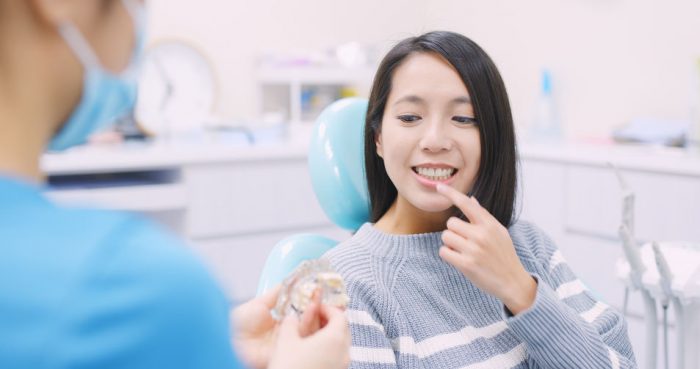The mouth has so many amazing functions. We use it to eat, speak, smile and express ourselves. Of the twelve cranial nerves that we have, almost half have a part to play in our mouth and throat. Given how important this part of our body is, knowing how to take care of it allows us to function healthily and gracefully for the rest of our lives.
Everything we consume goes through our mouths. It is the first point of contact that we have with our food. Have you ever thought of eating with dirty forks and spoons? If that thought is repulsive to you, consider that poor oral hygiene means that all the food that you chew and swallow are mixed with extremely high amounts of disease-causing germs and bacteria. And all this before you even swallow your food, not a very pleasant thought indeed!
So how do we ensure that this important part of our body is well taken care of so that we can live healthily for the rest of our lives?
The following are the best dental practices that can help you maintain good oral health;
-
Brush your teeth
We have heard this phrase since we were kids, and for good reason! We only have one set of permanent teeth, take care of them and they will serve you well in the years to come. As your teeth are exposed to the external environment and everything you will ingest, brushing twice daily is essential in keeping them clean.
Here are proper brushing basics you should practice
- Brush your teeth twice a day. When brushing your teeth, do it systematically. This process should take at least two minutes. Do not forget to clean your tongue as it harbours bacteria too. You can use a tongue scraper or a toothbrush to clean your tongue.
- Brush the right way. Hold your toothbrush at a 45-degree angle at your gum line and aim the bristles towards the area where your teeth meet the gum. Use a gentle amount of pressure and brush in a short, circular motion, moving from one segment of teeth to the next. Remember to brush the inside, outside, and chewing surfaces of your teeth. Be gentle and do not scrub vigorously!
- Electric or manual? Hard, medium or soft? You could get an equally good clean with an electric or manual toothbrush, but for those with manual dexterity issues, an electric toothbrush could be more efficient and convenient to use. Medium and hard-bristled toothbrushes are more abrasive in nature and may damage your teeth over time. That is why we recommend a soft-bristled toothbrush that feels gentle on your teeth.
- Replace your toothbrush. You should change your toothbrush or a replacement head for your electric toothbrush every three months, after a bout of illness, or when the bristles start to fray.
- Use a fluoride-based toothpaste. You should be using a toothpaste that includes fluoride with a concentration of 1450ppm as this is essential in protecting your teeth. Fluoride works by interacting with and hardening your tooth surface to make it less susceptible to decay, through the process called remineralisation. So before choosing the first minty toothpaste that you see in your local store, ensure that fluoride is the active ingredient and in the correct concentration.
- Use a less abrasive toothpaste. Whitening toothpastes are generally more abrasive in nature. They are used to combat external stains on teeth from habits such as smoking. While these may help for a while for some people with these habits, in the long term these toothpastes are generally too harsh for your teeth and it is possible to slowly wear away your teeth. Toothpastes that are desensitising are generally lower on the abrasive scale and are gentler on your teeth.
-
Flossing For Oral Health
The importance of flossing cannot be over-emphasised. It sounds tedious to do, but it is so important in ensuring that you remove bacteria from the areas between teeth that are inaccessible to your toothbrush. Also, with some practice, you will get faster and more efficient with it, I promise!
Here are the best practices when it comes to flossing;
- Don’t skimp. Break off about 18 inches of dental floss (or about the length of the width of your shoulders). Wrap the floss around your middle fingers. Grip tightly between your thumbs and index fingers on each hand.
- Be gentle. Slip the floss between your teeth. Curve it against the tooth on either side by making a c-shape when you reach the gum line. Remember to slide in under the gumline to clean out plaque hidden under the gumline. Floss the side of your tooth in up-and-down motions. Unwind fresh floss for each tooth
Do not hesitate to ask your dentist to show you how to get to areas you feel you are not reaching well enough. There could be a better technique that you were not aware of that you could learn!
Other Oral Care Tips For Healthy Teeth and Gum;
-
Reduce harmful habits
Smoking. Everyone knows that smoking kills, but did you know that smoking affects your gums and soft tissues too? Smoking increases the risk for gum disease, failure of dental implants and even oral cancers. If it is possible to reduce or break the habit, it would greatly benefit your oral health in the long term. For those that find it difficult to, you may have to visit the dentist more regularly for closer follow-ups.
Clenching and grinding. Some people grind or clench their teeth habitually. All these habits can cause an overload on your jaw joints, teeth and muscles of the jaw. Symptoms such as jaw pain, headaches and cracked teeth could develop in the long term. Speak to your dentist if you suspect that you have these habits or symptoms relating to them.
Chewing hard foods (nuts, ice etc). While nuts are generally healthy for you, over consumption of hard foods could result in development of cracked teeth. If possible, grind the nuts down before you eat them. Avoid harmful habits like chewing ice cubes, and most definitely do not crack open crab shells with your teeth, please!
-
Consume teeth-friendly foods
For many people, the primary reason for eating food is that they taste good. However, what you eat has an impact on not only your health but your teeth too.
Foods that are lower in sugar content are generally healthier not just for your body but teeth. Feel free to eat what you enjoy, but remember that making small decisions for healthier options could have a huge positive impact on your health and teeth.
Do limit intake of carbonated drinks. These contain acids that will erode your teeth. Also, they normally contain excessive amounts of sugar, which worsens the damage to your teeth over time.
Frequency of snacking and meals play a vital role in managing your decay risk. In general, having fewer meals/snacks in a day reduces your risk of tooth decay. You could rinse with water after eating to wash out larger food particles.
Healthy tip – if you must take alcohol or sodas, do so with a straw to prevent most of the drink from having direct contact with your teeth.
-
See a Dentist Regularly
Even if you applied the best dental practices that we stated above, regular visits to the dentist are still necessary.
There are dental problems that you may not be aware of until it is too late. By the time you feel pain, the cost to fix the problem could be rather painful to bear.
During your checkup, your dentist will do an oral examination (that may include taking dental x-rays), clean your teeth by removing tartar and plaque, as well as make recommendations on how often you should return for a visit. Most experts recommend that you see a dentist every six months. However, some patients do have to be followed up at a shorter interval of 3 months because of a higher risk for future problems. Your dentist will be able to personalise care for you.
Do seek professional help promptly if you notice any of the following symptoms;
- Tender or swollen gums
- Loose permanent teeth
- Gums that bleed when you floss or brush
- Unusual sensitivity to cold or hot beverages
- Persistent bad breath and weird taste in your mouth
- Pain when chewing things
Final Thoughts
Being able to eat, speak and smile confidently for your whole life is possible when small and inexpensive steps are taken regularly to maintain your oral health.
We sincerely hope that you do not wait until you develop major dental issues to consult a dentist. It is saddening when some of the issues that we see could have been completely prevented or addressed earlier with minimal invasiveness.
If you have fears about visiting the dentist, just speaking about it with us is the first step in managing your anxiety. It is possible to stage treatment into shorter, more manageable sessions.
Your oral health deserves to be invested in, make an appointment with our friendly staff at a dental clinic close to you today!





